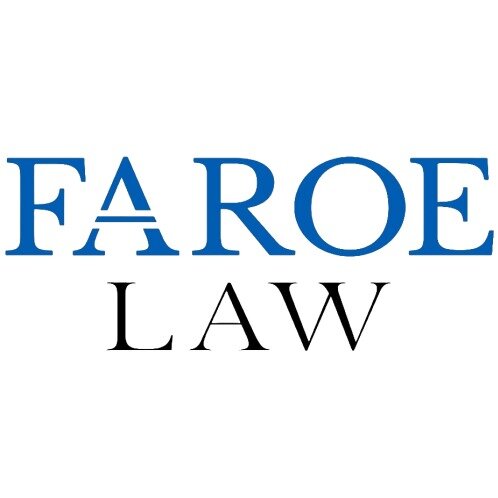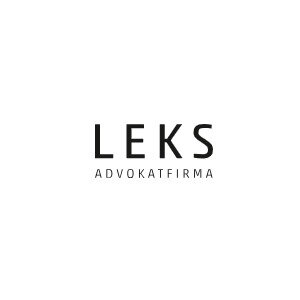Best International Trade Law Lawyers in Faroe Islands
Share your needs with us, get contacted by law firms.
Free. Takes 2 min.
Or refine your search by selecting a city:
List of the best lawyers in Faroe Islands
About International Trade Law in Faroe Islands
International Trade Law in the Faroe Islands is a specialized legal area that governs the rules and regulations related to trade between entities in the Faroe Islands and foreign countries. This includes treaties, trade agreements, import and export regulations, and other laws affecting international trade. The legal framework is designed to facilitate fair commerce while ensuring compliance with both local and international standards.
Why You May Need a Lawyer
Engaging in international trade can be complex due to variations in legal requirements across different jurisdictions. A lawyer specializing in International Trade Law may be needed for a variety of reasons, including:
- Drafting and reviewing international contracts and trade agreements.
- Navigating import/export regulations and customs duties.
- Resolving trade disputes or customs-related issues.
- Ensuring compliance with international trade laws and sanctions.
- Advising on international investments and joint ventures.
- Understanding the impact of trade tariffs and restrictions.
Local Laws Overview
The Faroe Islands have a unique trade relationship with Denmark and the European Union, given their status as an autonomous territory. Key local laws relevant to International Trade Law include:
- Trade Agreements: The Faroe Islands negotiate trade agreements independently, handling agreements with the European Union and other countries.
- Customs and Excise Laws: Regulations concerning the import and export of goods and duties applicable to international transactions.
- Fishery Policies: Due to the pivotal role of fisheries in the economy, there are specific rules governing international fish trade.
- Sanctions and Export Controls: Compliance with international sanctions and regulations concerning export controls.
Frequently Asked Questions
What is the role of International Trade Law in the Faroe Islands?
International Trade Law regulates the trading relationships between Faroese entities and international markets to ensure compliance, fairness, and legal adherence.
Do the Faroe Islands have their own trade agreements?
Yes, the Faroe Islands negotiate their own bilateral and multilateral trade agreements separate from Denmark and the European Union.
How can a lawyer assist with international trade compliance?
An experienced lawyer can help ensure that all trade activities meet legal requirements, manage customs documentation, and address compliance issues.
Are there any special considerations for trading fish with the Faroe Islands?
Yes, fisheries form a critical part of the Faroese economy, requiring adherence to specific trade policies and regulations.
What should I do if I encounter a trade dispute?
Consider consulting a lawyer who can offer guidance on conflict resolution and represent you in negotiations or legal proceedings.
Can businesses benefit from trade agreements negotiated by the Faroe Islands?
Indeed, these agreements can provide favorable trading terms, limit tariffs, and facilitate better market access.
What import/export duties are applicable in the Faroe Islands?
Duties vary depending on the type of goods and the existing trade agreements. A legal advisor can help determine applicable duties.
How does international sanction compliance affect Faroese trade?
Businesses must ensure they do not trade with sanctioned countries or individuals, requiring careful monitoring and compliance efforts.
Is there a risk in ignoring international trade regulations?
Non-compliance can lead to legal penalties, fines, shipment delays, and damage to commercial reputation.
What steps should I take before engaging in international trade?
Conduct thorough research, understand relevant laws, and consult a legal expert to minimize risks and ensure compliance.
Additional Resources
Several resources can assist those seeking assistance with International Trade Law in the Faroe Islands:
- Faroese Government Trade Departments
- Local law firms specializing in international trade
- Trade associations and chambers of commerce
- European Union trade bodies for non-member guidance
Next Steps
If you require legal assistance in the field of International Trade Law:
- Identify a qualified lawyer or law firm specializing in international trade in the Faroe Islands.
- Schedule a consultation to discuss your specific legal needs and understand potential legal costs.
- Prepare all necessary documentation and background information relevant to your trade issues.
- Work collaboratively with your legal advisor to navigate your legal challenges effectively.
Lawzana helps you find the best lawyers and law firms in Faroe Islands through a curated and pre-screened list of qualified legal professionals. Our platform offers rankings and detailed profiles of attorneys and law firms, allowing you to compare based on practice areas, including International Trade Law, experience, and client feedback.
Each profile includes a description of the firm's areas of practice, client reviews, team members and partners, year of establishment, spoken languages, office locations, contact information, social media presence, and any published articles or resources. Most firms on our platform speak English and are experienced in both local and international legal matters.
Get a quote from top-rated law firms in Faroe Islands — quickly, securely, and without unnecessary hassle.
Disclaimer:
The information provided on this page is for general informational purposes only and does not constitute legal advice. While we strive to ensure the accuracy and relevance of the content, legal information may change over time, and interpretations of the law can vary. You should always consult with a qualified legal professional for advice specific to your situation.
We disclaim all liability for actions taken or not taken based on the content of this page. If you believe any information is incorrect or outdated, please contact us, and we will review and update it where appropriate.
Browse international trade law law firms by city in Faroe Islands
Refine your search by selecting a city.













